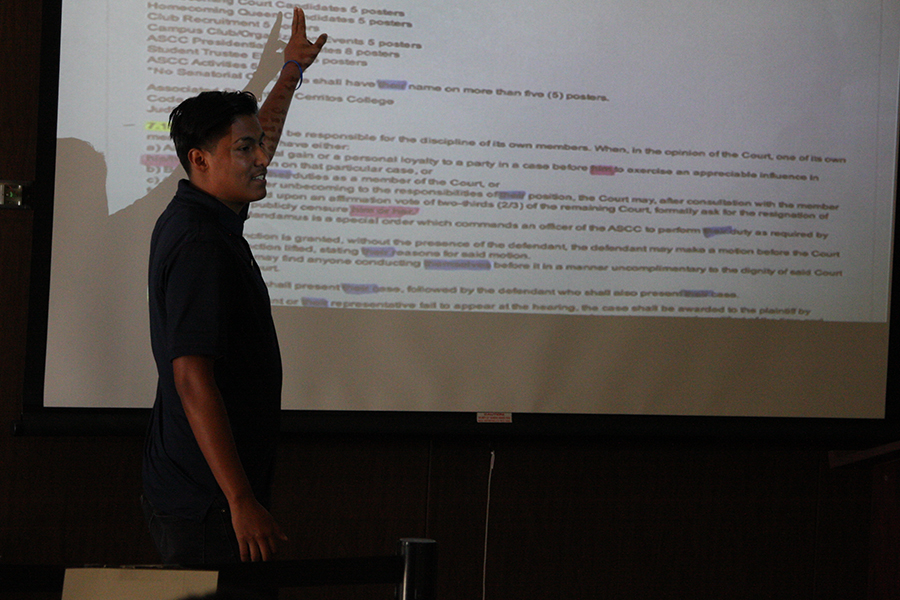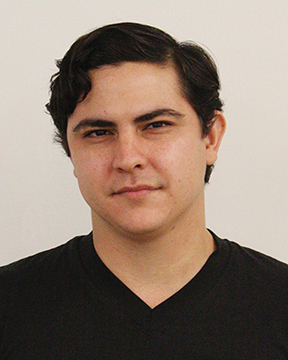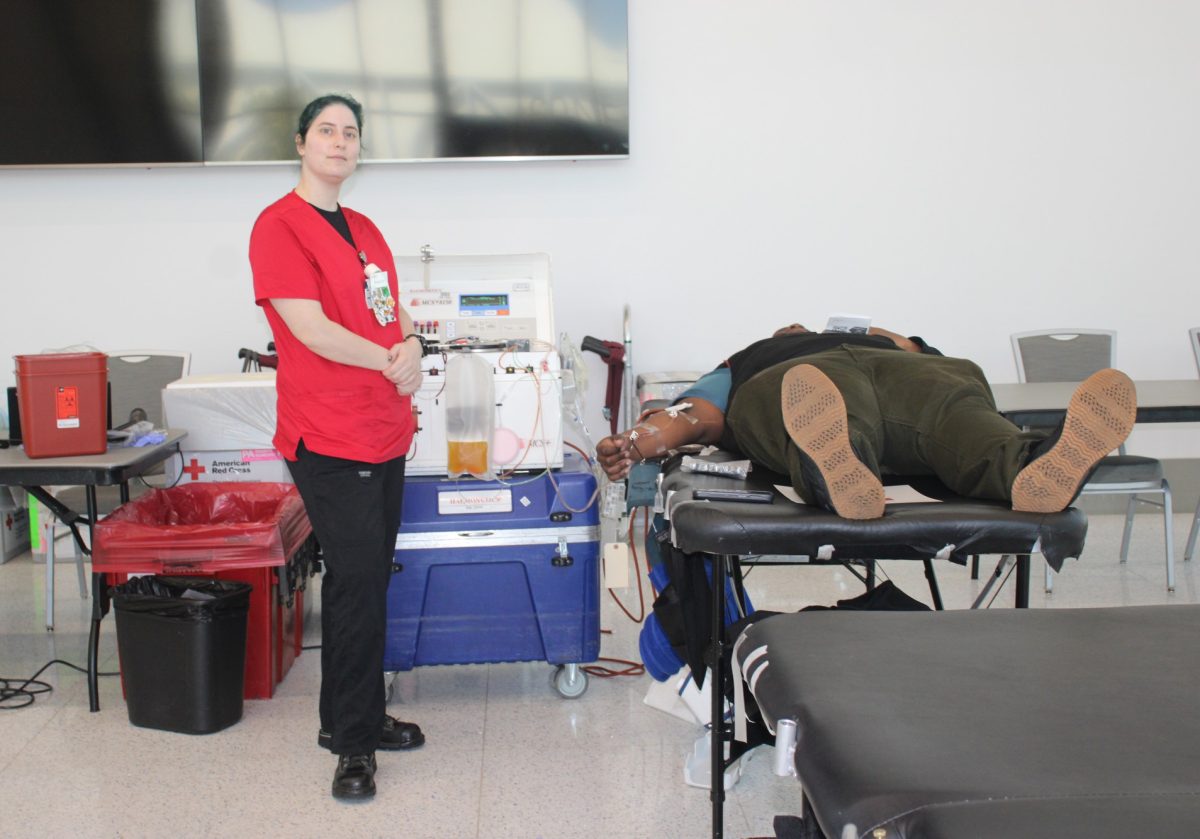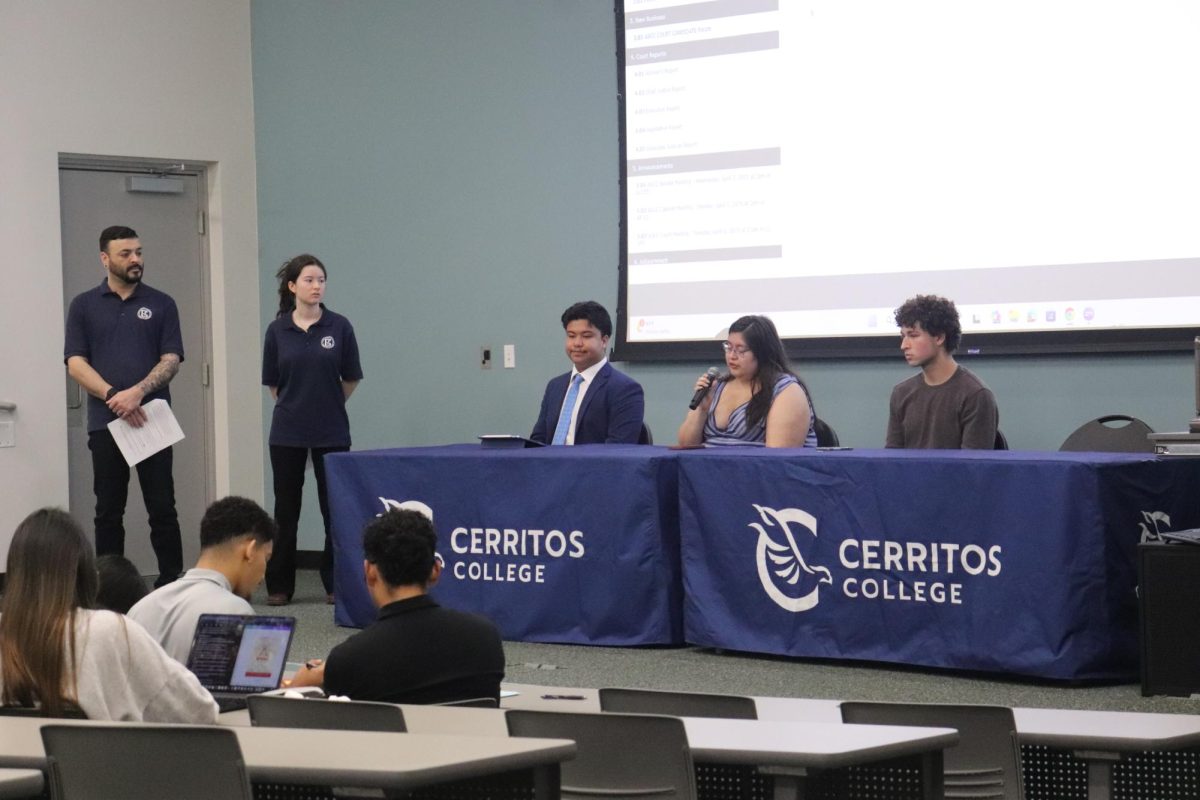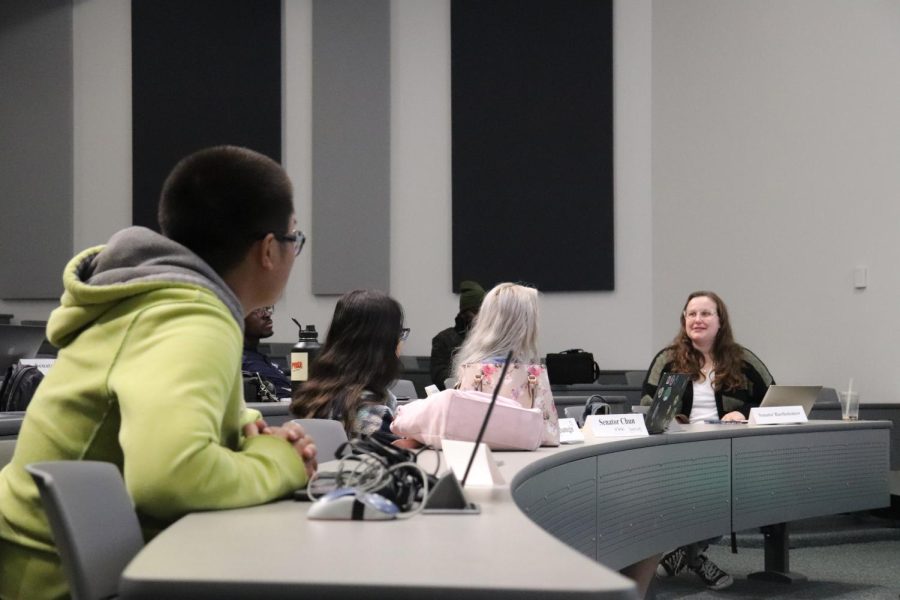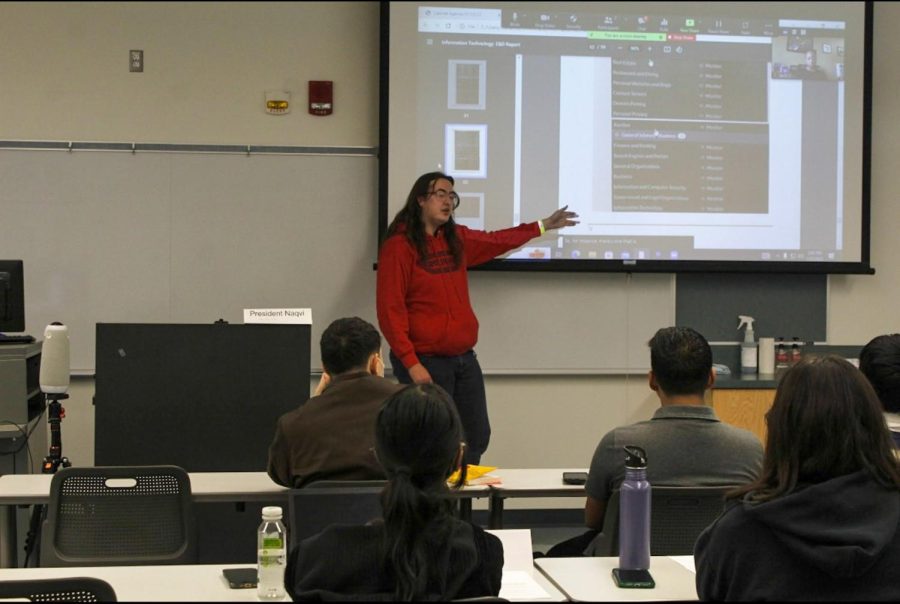On Wednesday, May 3 ASCC Senate was able to get legislation passed concerning the bylaws using gender specification. The bylaws will no longer contain gender normative pronouns.
The legislation will change words such as “he” and “she” to “them” and “they”. And words such as “chairman” will be changed as well.
For example, in the Code Section VI: Publicity code 6.11 in reads:
“Any reference to the Commissioner of Public Relations shall mean the Commissioner and any of his/her assistants.”
With legislation passed it will now read as:
“Any reference to the Commissioner of Public Relations shall mean the Commissioner and any of their assistants.”
Another example is found in Code Section VII: Judicial code 7.401:
“By two-thirds (2/3) vote, the Senate may formally impeach the accused wherein the Senate shall petition in the Court to try the accused for his/her office and/or standing in the ASCC. The petition shall be delivered by the Senate Clerk to the Court Clerk.”
With the new legislation:
“By two-thirds (2/3) vote, the Senate may formally impeach the accused wherein the Senate shall petition in the Court to try the accused for their office and/or standing in the ASCC. The petition shall be delivered by the Senate Clerk to the Court Clerk.”
This was the second time this had gotten presented to senate. The week prior, many of the gender specification had not been changed in the presentation of the bylaws, and approving it would have left some of them unchanged.
Senator Javier Varela, who presented the legislation, was told to come back and thus was able to read through all the bylaws with the help of other senators and get it passed this time around.
Varela said that he felt this is what needed to be done in order for students who don’t conform the gender pronouns can feel included in these meetings.
“It wasn’t just me it was a team effort and we wanted to give those who do not conform to a specific gender, we wanted them to feel that they are a part of us and our community. Our campus community should be a family and as a family we should accept everyone and we want to accept those who do not place themselves as a [normative] gender,” Varela said.


